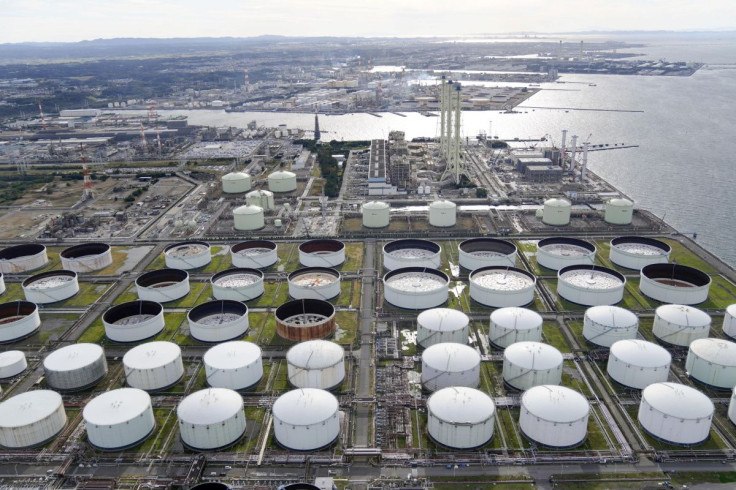Oil Prices Steady On China Demand Recovery Expectations, Supply Concerns

Oil prices were stable on Wednesday as supply concerns and expectations that easing COVID-19 restrictions in China will boost demand eased losses from the previous session.
Brent crude was up 2 cents, or 0.2%, at $111.95 a barrel at 1412 GMT, while U.S. West Texas Intermediate (WTI) crude climbed 29 cents, or 0.26%, to $112.69 a barrel.
Hopes of further lockdown easing in China boosted expectations for demand recovery. The country's authorities allowed 864 of Shanghai's financial institutions to resume work, sources said on Wednesday, and China has relaxed some COVID test rules for U.S. and other travellers.
The market was also supported by ongoing supply concerns. Russian crude output in April fell by nearly 9% from the previous month, an internal OPEC+ report showed on Tuesday, as Western sanctions on Moscow curbed exports.
Brent rose by more than $2/bbl while WTI rose by over $3/bbl earlier in the session, but eased in afternoon trading following a change in risk sentiment as equity markets fell, said UBS analyst Giovanni Staunovo.
Bearish sentiment also followed reports that the U.S. is planning to relax sanctions against Venezuela and allow Chevron Corp to negotiate oil licences with Venezuela's national producer.
"Though this will bring little relief to the market in the short term, it would nonetheless be a first step towards ensuring that more oil could reach the market in future from currently sanctioned countries," Commerzbank analyst Barbara Lambrecht said.
The European Union's failure to persuade Hungary to lift its veto on a proposed embargo on Russian oil is adding price pressure, although some diplomats expect agreement on a phased ban at a summit at the end of May.
The EU intends to mobilise up to 300 billion euros of investments by 2030 to end its reliance on Russian oil and gas, European Commission President Ursula von der Leyen said on Wednesday.
"In the meantime, the oil market will likely take its cues from today's EIA update concerning U.S. oil stocks," PVM analyst Stephen Brennock said.
U.S. crude and gasoline stocks fell last week, according to market sources citing American Petroleum Institute figures on Tuesday.
For the economic outlook, U.S. Federal Reserve Chairman Jerome Powell on Tuesday said the central bank would ratchet up interest rates as high as needed to stifle inflation that he said threatened the foundation of the economy.
© Copyright Thomson Reuters 2024. All rights reserved.




















